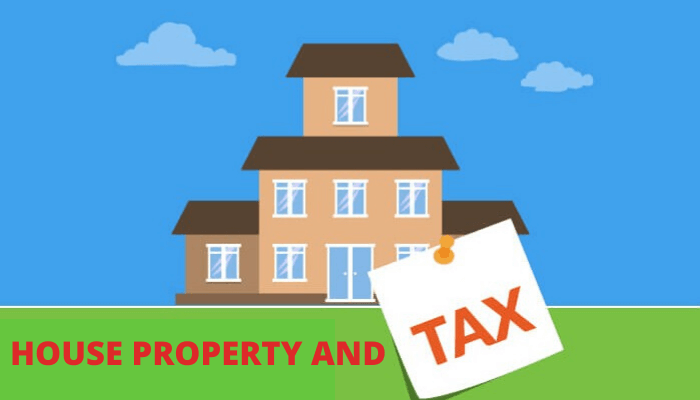In this article, we will discuss about...
House Property Meaning:-
House property by its literal meaning is any Residential Or Commercial Property as there is no distinguishment in the Income Tax Law House property can be Office or Home or Building or any other area of land that is attached to the earth.

1. Self-Occupied House Property:- Self Occupied House Property by its literal meaning is the property where the owner of the property uses it for his own residence purpose. It means that property is neither rented nor Commercial. Taxpayer’s family will occupy the house property – Family will consist of parent and/or spouse and children. A house property of Vacant nature is considered as self-occupied for the purpose of Income Tax.
- For the purpose of the Income Tax Act,1961, for the FY 2019-20 and onwards, Self-Occupied Property benefit has been extended to 2 House Property. That means that the Owner of the Property who has more than 1 House property, has the option to decide 2 House Property as Self Occupied Property.
2. Let Out House Property:-Here, it means that property is rented out for a Particular Period upon the Agreement thereof.
3. Inherited Property:- It can either be self-occupied one or a let out one based on its usage as it is acquired from the Grandparents or Parents.
Calculation from Income From House Property:-
1. Gross Annual Value (GAV) of the property:-
One has to determine GROSS ANNUAL VALUE for the Property to reach House Property Income.
2. Deduct Property Taxes
The property owner has to reduce Property tax as a deduction from the GAV of property. And this Municipal Property Taxes will be allowed as a deduction on Paid Basis not on due basis.
3. Net Annual Value
Gross Annual Value less the Property Tax is called the Net Annual Value.
4. 30% of NAV towards standard deduct
Under Section 24 of the Income Tax Act, 30% on NAV is allowed as a deduction from the NAV. The objective of this deduction is to be allowed all Miscellaneous expenses related to House Property.
5. Home Loan Interest
Interest paid during the year on housing loan availed is allowed as a deduction under section 24.
6. House property Income
It is taxed at the slab rate applicable to you.
7. House property Loss
When you own a self-occupied house, since its GAV is Nil, claiming the deduction on home loan interest will result in a loss from house property. House Property loss can be set off against income from other heads in the relevant year of Income Tax Return Filing.
Home Loan Deduction u/s 24
Owners of the house property can claim a deduction of up to Rs 2 lakh on their home loan interest if the owner or his family resides in the house property. When the house property is vacant then the same calculation Treatment will be applied. However, If you have rented out the property, the home loan interest on the entire Home will be allowed as a deduction.
Deduction on Principal Repayment of Home Loan
Section 80C provides the exemption of RS. 150000 for the principal amount of loan thereof, Provided the following conditions are satisfied:-
- Purchase or Construction of a new house property should be for the Home loan
- A Lock-in period of 5 years will be applied, so the property must not be sold in five years from the time you took possession.
Section 80EE(Additional Tax Benefit)
It provides the homeowners, with only one house property on the date of sanction of loan, a tax benefit of up to Rs 50,000
Tax Deduction for First-Time Homeowners: Section 80EEA
A new section 80EEA is added to extend the tax benefits of the interest deduction for housing loan taken for affordable housing during the period 1 April 2019 to 31 March 2020. The individual taxpayer should not be entitled to deduction under section 80EEA
